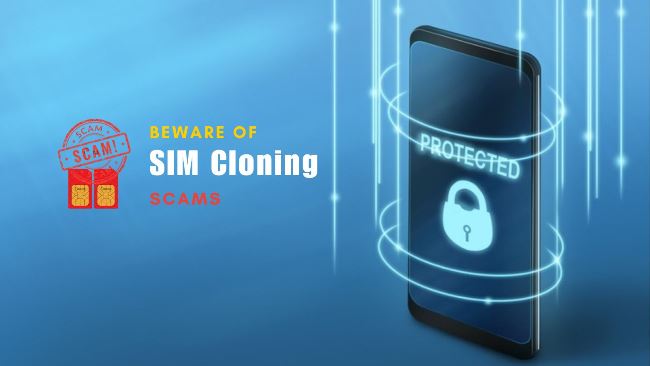Be Aware of SIM Cloning Fraud

A criminal group is defrauding people through SIM cloning, seizing their hard-earned money. Some incidents go unnoticed by the public eye. This group often targets government officials, senior law enforcement officers, and political leaders.
The SIM (Subscriber Identification Module) card is an essential component of mobile phones. Through SIM card cloning, these criminals employ new tactics to deceive people. Although law enforcement sometimes apprehends this group, stopping them has proven difficult as they constantly devise new tricks to steal millions from unsuspecting victims.
What is SIM Cloning?
In terms of information technology, cloning involves making a call using a different network but keeping the same mobile number. When the recipient has saved the original number, the saved name will still appear, even if the call originates from another network. For example, if Mrs. Zaman (pseudonym) has saved a number as “Kobita” and a fraudster calls her with a similar-looking number from another network, it will appear on her screen as “Kobita.”
Investigations reveal that returning missed calls from unknown numbers may lead to SIM cloning, which is then used for various criminal acts, including threats. Special software is often employed in these cases. When a SIM is cloned, data on the SIM card and phone memory can be stolen, and the cloned number can be used for criminal purposes.
According to intelligence sources, answering calls from numbers starting with certain codes (e.g., +xxxxxx) increases the risk of SIM cloning, enabling unauthorized access to personal information. If you do not answer these calls, there is no risk. Some dangerous numbers include +88016306, +880178, and +88018503.
Further investigation reveals that fraudsters often use fake documents to obtain SIM cards, making it difficult for investigators to trace them. Measures are now in place to prevent SIM purchases without biometric verification and a national ID card. However, fraudsters can still access deactivated SIM cards through corrupt officials within telecom companies, often unbeknownst to the original owner.
In some cases, fraudsters clone an active number without the owner’s knowledge, keeping the same number functional on two different SIMs. If a call is made to the cloned number, it will connect to the most recently active SIM.
Unfortunately, mobile operators have not taken adequate steps to secure personal data. It’s not uncommon to hear complaints about SIMs registered under one person being used by someone else. News of this type of fraud often appears in newspapers, online news portals, electronic media, and social networks.
The misuse of this technology allows criminals to clone SIM cards of government officials, representatives, or law enforcement members to defraud the public.
Recent reports indicate that a criminal group has cloned the numbers of DCs, UNOs, OC officers, and local government chairs across the country, extorting large sums of money. This practice, known as “cloning,” involves using software or applications to duplicate mobile numbers. Even ministers and MPs have reportedly fallen victim to this fraud.
Criminals have now introduced a new technique called “spoofing,” which allows them to hide their computer or mobile device ID. Law enforcement agencies have identified a large group involved in these activities using advanced technology. The BTRC (Bangladesh Telecommunication Regulatory Commission) has also fallen victim to this fraud.
On October 17 of last year, the BTRC released a statement warning that fraudsters were impersonating their officials to steal personal information through phone calls and SMS. Reports indicate that this group has extorted millions from individuals across 40 districts, including Bhola, Cox’s Bazar, Chittagong, Kushtia, and others, by impersonating UNOs.
SIM cloning and spoofing pose significant risks, making it necessary to inform law enforcement agencies if anyone suspects their personal SIM has been cloned. Many rural residents remain unaware of this risk.
Recognizing the need for public awareness Former UNO of Karnaphuli Upazila, Mr. Bijen Banerjee, issued a warning on the office’s Facebook page, urging public caution.




